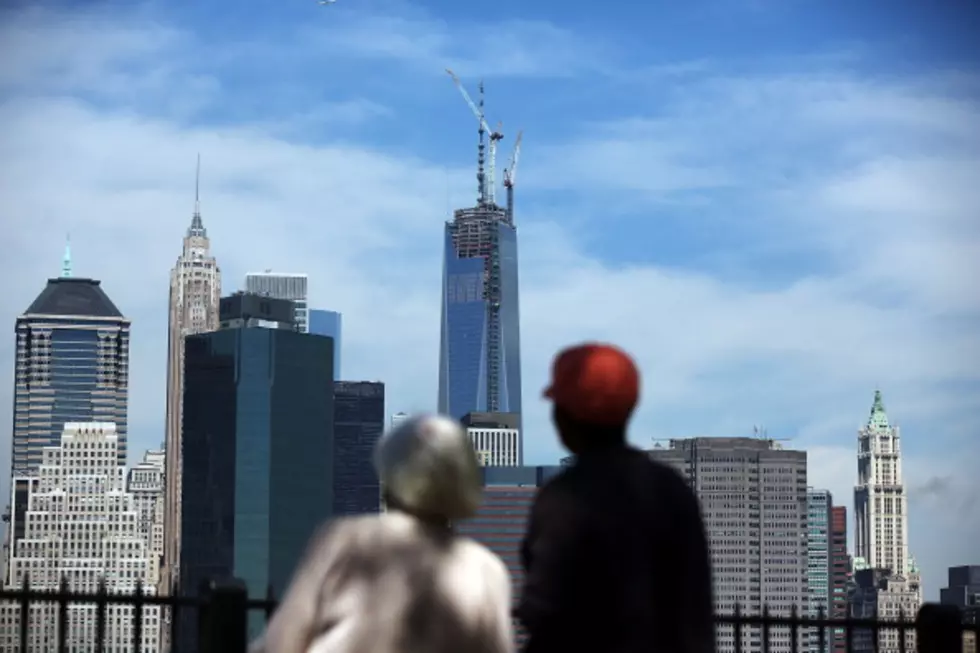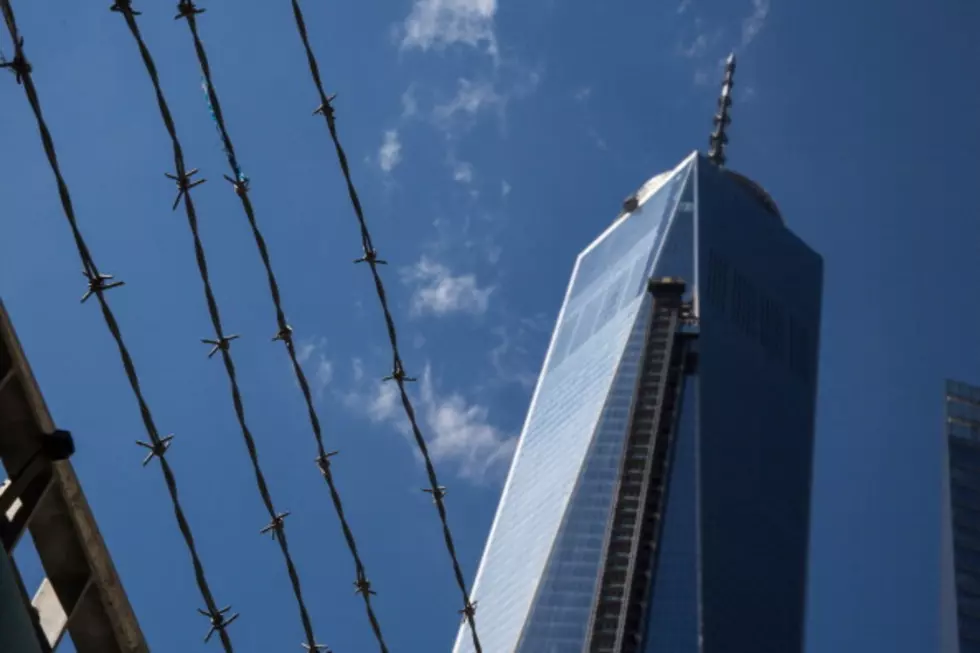
Four Face Charges in WTC Jump
Three extreme-skydiving enthusiasts accused of parachuting off the 1 World Trade Center tower last fall turned themselves in to police on Monday, defense lawyers said, in a second criminal case in two weeks arising from surreptitious stunts at the nation's tallest skyscraper.
The three daredevils and someone accused of being an accomplice were expecting to face felony burglary charges in a Sept. 30 leap from the building, where a teenage boy was arrested on March 16. Authorities said the teen had slipped through a gap in a fence, eluded an inattentive security guard and spent about two hours atop the 1,776-foot-tall tower.
The incidents have raised questions about security at the lower Manhattan site, which is supposed to be one of the most tightly protected in the country.
The New York Police Department and the Manhattan district attorney's office had no immediate information on Monday's arrests. Police at the Port Authority of New York and New Jersey, which owns the trade center site, didn't immediately return a call for comment.
The NYPD said last fall that investigators were looking for two parachutists in dark jumpsuits seen floating near the building around 3 a.m. on Sept. 30, landing by a nearby skyscraper and walking away.
It was "very exhilarating," one of the accused jumpers, Andrew Rossig, said Monday as he and co-defendant James Brady headed to a police precinct to surrender.
"It's a fair amount of free-fall time," he said. "You really get to enjoy the view of the city and see it from a different perspective."
Rossig, an avid BASE jumper -- the acronym stands for "building, antenna, span, earth" -- said the skydivers took care to keep from endangering anyone, choosing a time when streets would be largely deserted. Brady, an ironworker who formerly worked at the trade center, declined to comment.
It wasn't immediately clear how investigators zeroed in on Rossig, Brady, skydiving instructor Marko Markovich and Kyle Hartwell, accused of being their cohort on the ground. Police searched their homes last month and got video of the jump, which hadn't been posted online or otherwise publicized, Rossig attorney Timothy Parlatore said. But he said authorities didn't signal arrests were imminent until 16-year-old Justin Casquejo's arrest last week.
Hartwell's lawyer, Joseph Murray, said Hartwell also surrendered and declined to comment further. Markovich's attorney, Joseph Corozzo, said his client was a "very responsible individual" and highly trained parachuting instructor.
"He has an impeccable background, and I just hope that he's not turned into some form of a scapegoat for the Port Authority's shortcomings" in security, Corozzo said.
All four defendants were awaiting arraignment.
The skyscraper, still under construction, crowns the rebuilt World Trade Center, a project steeped in security concerns. Mayor Bill de Blasio has called what Casquejo is accused of doing "shocking and troubling."
The NYPD devotes more than 200 officers, surveillance cameras and other technology to protect the perimeter of the site, while Port Authority police and private security agents guard the inside. Ultimately, plans call for a $40 million system of barriers and checkpoints around the 16-acre trade center site.
But Rossig said the jumpers got in simply by walking through a gap in a fence, echoing an account the Port Authority says Casquejo gave police about what he did.
An official not authorized to discuss the investigation and speaking on the condition of anonymity disputed that account, saying that Brady used his work access to secret his parachuting pals into the site. Brady's attorney, Andrew Mancilla, denied that and cited Rossig's version of what happened.
While Casquejo, of Weehawken, N.J., fights a misdemeanor trespassing charge, lawyers for the parachute jump defendants said their clients were expected to face felony burglary charges. The offense entails being in a building illegally with an intent to commit another crime -- in this case, breaking a 2008 city law against parachuting off buildings more than 50 feet tall, defense lawyers said.
The misdemeanor law was passed after former television stuntman Jeb Corliss tried to parachute off the Empire State Building in 2006 and three climbers separately scaled The New York Times' 52-story headquarters in 2008.
A judge dismissed a felony reckless-endangerment case against Corliss, noting his BASE jumping experiences and efforts to minimize the risk of his leap.
Two Times climbers pleaded guilty to misdemeanor reckless endangerment. The third admitted disorderly conduct, a violation, after a grand jury heard about his climbing experience and safeguards and refused to indict him on more serious charges. All were sentenced to community service.
(Copyright 2014 by The Associated Press. All Rights Reserved.)
More From New Jersey 101.5 FM

![Younger, Male Drivers Paying More for Insurance [AUDIO]](http://townsquare.media/site/385/files/2014/04/RS4630_91719642-scr-300x200.jpg?w=980&q=75)
![Kids Driving You Crazy? You’re Not Alone [POLL/AUDIO]](http://townsquare.media/site/385/files/2014/03/RS2966_106456110.jpg?w=980&q=75)
![How Long Could You Last Financially Without Work? [AUDIO]](http://townsquare.media/site/385/files/2014/03/RS2403_149136925.jpg?w=980&q=75)

![Latest Reports: Slow But Improving Job Growth [AUDIO]](http://townsquare.media/site/385/files/2014/01/147883227.jpg?w=980&q=75)


![Rearview Cams to be Mandatory by 2018 [AUDIO]](http://townsquare.media/site/385/files/2014/03/rear-view.jpg?w=980&q=75)
